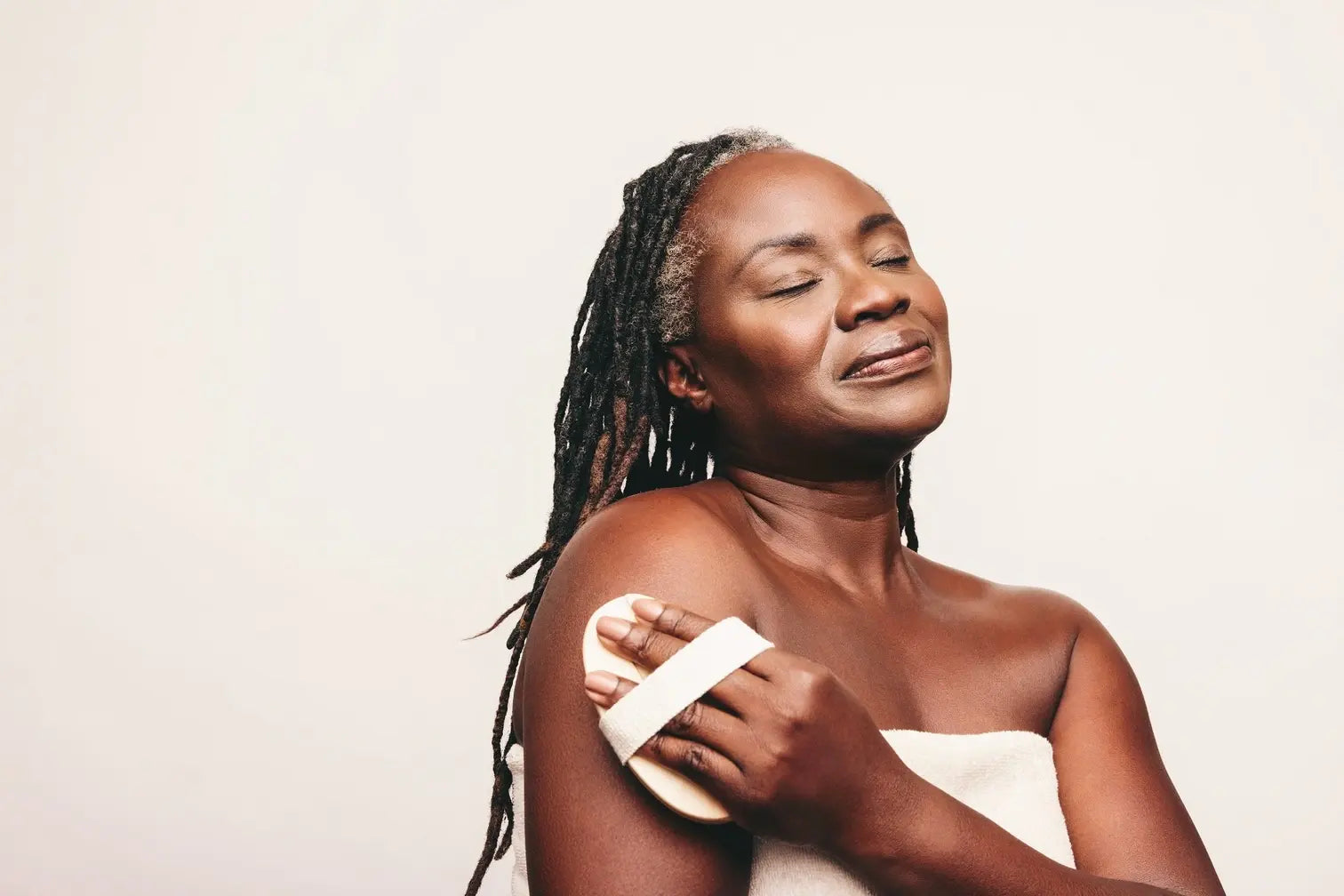Understanding Over-Exfoliation
The outer layer of skin, the stratum corneum, sheds old cells replacing itself fully every month .1 While many of these dead skin cells simply fall off, some can cling to the surface or get lodged in pores. Not only can these dead skin cells worsen skin conditions like acne, they’re dry and hard which gives your skin a rough and uneven texture. Exfoliation involves removing that outermost layer of skin, promoting skin cell turnover and revealing live skin cells that can better absorb nutrients from your skincare products .1
Signs of Over-Exfoliation
You should always inspect your skin after exfoliation for the most common side effects including noticeable redness, irritation, and increased sensitivity. When skin is compromised through over-exfoliation, the body sends a repair response by dispatching blood cells to heal the area but it also releases inflammatory compounds that cause itchiness, red discoloration, and discomfort .4
Exfoliation will usually leave your skin feeling flushed, tingly, and maybe a little red but should not result in pain or persist for more than a few hours. Problematically, often once you've damaged a sensitive part of your stratum corneum, it can take as long as a month for your over-exfoliated skin to heal .5,6

Causes of Over-Exfoliation
Oily
Oily skin types are very responsive to most skin exfoliation treatments as they can reduce oil buildup in the skin and pores .8 This may be effective at minimizing acne breakout in acne-prone skin, however, it makes it easy to overuse chemical and physical exfoliants to the point of damaging the skin. Though oily skin isn’t as susceptible to dryness, harsh cleansers, rough physical exfoliants, and chemical exfoliants can still cause physical damage to sensitive facial skin if not used in moderation.
Dry
Drier skin types are particularly vulnerable to excessive physical exfoliation as the process damages sensitive skin leading to even more problems in the future. As it is easy to strip away both layers of skin cells and their oils, opt for gentler chemical exfoliants that avoid drying out your skin .8 Exfoliation for dry skin should be spaced out and paired with a skincare routine designed to protect and rejuvenate skin's oils. If your skin is sensitive make sure your entire skincare routine uses gentle products that avoid skin irritation. One in particular you might want to consider is PREP, our gentle daily cleanser that removes impurities without compromising the skin's natural balance.
Healing Over-Exfoliated Skin
Using Oneskin Products for Recovery
Why stop at just recovery when you can give your skin what it needs to become stronger than ever? OneSkin’s OS-01 proprietary peptide boosts skin cell turnover and increases epidermal thickness and barrier function.*11 Powered by the OS-01 peptide, OS-01 FACE, OS-01 EYE, and OS-01 BODY are all clinically validated to boost skin’s barrier function* which can help fortify skin after exfoliation. These daily moisturizers are formulated to soothe and rejuvenate your skin without the use of potential irritants, meaning they’re suited for all skin types. Read more about integrating our topical supplements into your skin routine!
- Dead cells can cling to the surface of the skin; Exfoliation reveals the live healthy skin cells that can best utilize nutrients from the body and your skincare routine.
- After exfoliation, check for common side effects: redness, skin irritation, and increased sensitivity.
- Over-exfoliation strips the skin of essential oils that act as a shield against germs and irritants compromising the skin barrier.
- Long-term damage from over-exfoliation can result in dry, flaky skin, increased sun sensitivity, and weakened immunity.



